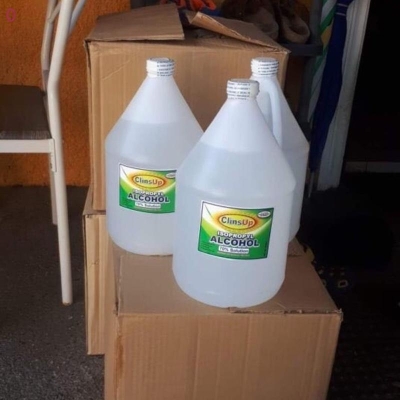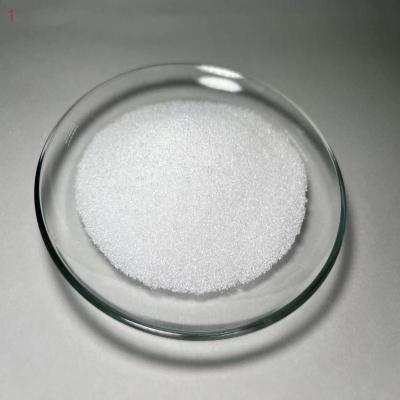-
Categories
-
Pharmaceutical Intermediates
-
Active Pharmaceutical Ingredients
-
Food Additives
- Industrial Coatings
- Agrochemicals
- Dyes and Pigments
- Surfactant
- Flavors and Fragrances
- Chemical Reagents
- Catalyst and Auxiliary
- Natural Products
- Inorganic Chemistry
-
Organic Chemistry
-
Biochemical Engineering
- Analytical Chemistry
-
Cosmetic Ingredient
- Water Treatment Chemical
-
Pharmaceutical Intermediates
Promotion
ECHEMI Mall
Wholesale
Weekly Price
Exhibition
News
-
Trade Service
On February 1, Volkswagen's first automotive power battery recycling pilot plant in Salzgitter was officially opened.
"Batteries are the core components of electric vehicles.
Sitting on the new energy vehicle decommissioned battery market with a large-scale trend, the nascent industry of power battery recycling has quickly taken the lead.
Big and small——
The expected scrap volume is large and the actual recycling volume is small
Driven by both policies and the market, my country's new energy vehicle industry has developed rapidly in recent years.
According to relevant professionals, lithium iron phosphate and ternary batteries are currently the two main battery types used in electric vehicles.
In conservative considerations, the retirement life of passenger car batteries is set to 7 years, and the retirement life of commercial vehicle batteries is set to 5 years.
But in fact, in the past year, the number of batteries entering recycling companies was much smaller than expected.
The number of "official announcement" recycling outlets has indeed increased in the past two years.
In 2018, seven departments including the Ministry of Industry and Information Technology and the Ministry of Science and Technology jointly issued a document clarifying that vehicle companies need to bear the main responsibility for the recycling of power lithium batteries.
Subsequently, batches of recycling outlets designated by car companies or tiered utilization companies have sprung up.
However, according to feedback from industry insiders, the establishment of nearly 10,000 recycling points all over the country is more of a mere formality.
Due to the low amount of retired batteries and imperfect recycling channels, the utilization rate of most recycling outlets is still low.
At present, the batteries retired from new energy vehicles are more scattered in the hands of various players in the market, and some companies directly resell the batteries after receiving them to make a price difference.
"On the whole, the issued policies are mainly administrative policies, lack of enforcement and punishment measures, and have limited binding force on the development of the industry.
The establishment of a complete recycling channel for decommissioned batteries is the cornerstone of the healthy development of the industry.
" Ye Shengji suggested that strict recycling should be set up.
Make use of enterprise access conditions, strengthen the traceability management of power batteries, thoroughly rectify the recycling chaos of small workshop-type enterprises, and standardize recycling channels.
More and less--
Newly added recycling companies have more dragons and fewer workers
In the face of attractive market prospects, batches of enterprises have poured in one after another.
According to the data from Tianyan Check, up to now, there are 242 companies in the country that include "power battery recycling".
There will be 85 new ones in 2020, accounting for more than one-third.
"China’s power batteries are handled by someone, and there is no technical problem.
" Bao Wei, general manager of Zhejiang Huayou Cycle Technology Co.
, Ltd.
(hereinafter referred to as "Huayou Cycle"), said that in 2017, the industry is still worried about whether the decommissioned power batteries are not.
Human disposal, but by the end of 2020, the capacity of domestic battery recycling companies has far exceeded the decommissioned amount of decommissioned power batteries.
Like Huayou Cycle, some relatively independent third-party recycling companies continue to grow and become important players in the field of power battery recycling.
Listed companies such as GEM, Guanghua Technology, and Tianqi Co.
, Ltd.
are actively deploying to seize the track.
Vehicle companies have also entered the field of battery recycling.
Zhou Zerun, a technical expert in the battery operation department of Weilai, told reporters that Weilai and Ningde Times, Guotai Junan and other companies have jointly invested in the battery asset company-Wei Neng.
The future goal is not only to do recycling, but to do the full life cycle management of batteries, from the upstream of the supply chain, to the period of production and vehicle service, to decommissioning, and material recycling.
"The biggest pain point of the industry at present is that we have not yet prepared for large-scale battery elimination.
" In Bao Wei's view, the main reason for the explosion and other safety accidents that occurred in power battery recycling companies was not technical problems, but the sudden increase in scrap volume.
New challenges are presented to enterprises.
In fact, if decommissioned batteries are not properly used and disposed of, in addition to electric shocks, fires and other electrical safety hazards, the heavy metals and electrolyte materials contained in them, such as nickel and cobalt, will also cause serious pollution to the ecological environment.
Ye Shengji said that in the long run, the development of the industry must rely on the technological innovation of key enterprises to play a leading role.
However, because the company has not yet formed a good profit point, the company has insufficient R&D investment and motivation, and slow technological progress, forming a vicious circle.
He suggested that industry institutions should give full play to the overall coordination role, condense the advantage resources of the industrial chain such as vehicle companies, power battery companies, and recycling companies to carry out industrialized technology collaborative innovation, cultivate leading companies in the industry, and lead the development of the industry.
Low and high——
Low recovery rate and high utilization value
In the early stage of the development of new energy vehicles, lithium iron phosphate batteries were the main type.
Therefore, at this stage, the types of battery recycling are mainly lithium iron phosphate batteries, which do not contain high-value metal materials such as cobalt and nickel, and it is difficult to make a profit for recycling.
In addition, the current amount of recycling is relatively limited, and it is difficult to form a scale effect, resulting in a large amount of idle production capacity, and recycling companies have difficulties in making profits.
“A lot of things in the auto industry are reducing prices, but the price of retired batteries is gradually increasing.
” Bao Wei told reporters that the power battery recycling industry is in its infancy.
Due to obvious signs of growth, many companies will enter the industry at relatively high costs.
As a result, the price of power batteries is irrational and does not conform to the laws of the market.
"The price of cascade batteries has reached the price of new batteries.
"
In contrast to the low profit margin, the value of power battery recycling is very high.
Ye Shengji said that retired electric vehicle batteries still have a high usable capacity, and the metal materials such as nickel, cobalt, and manganese contained in them have a high recycling value under the situation of scarce resources.
Carrying out the echelon and recycling of decommissioned batteries is of positive significance to the release of the value of the full life cycle of power batteries and the sustainable development of the industry.
"Huayou Cycle has collected nearly 10,000 tons of batteries from direct battery packs.
If you add some recycled intermediate products, the total amount may exceed 30,000 tons.
" Bao Wei said that the company reduced production through large-scale operations.
Cost, while possessing leading technology, combined with the recycling and processing of waste from battery factories, the resource recycling sector has achieved profitability.
In addition to the difficulty in profitability, Zhou Zerun analyzed that there are still three technical difficulties in power battery recycling, namely, "invisible", "unavailable" and "not good".
"Invisible" means that the power battery is a data-driven business, and it is difficult for companies to see the full amount of data; "not available" is a property right issue.
The regulatory authority requires the OEM to assume the main responsibility, but the battery is in the hands of the user.
The battery cannot be obtained if the right is confirmed; "bad use" is the result of not being able to see the data and not getting the battery, and the industrial chain is not smooth and it is difficult to land.
Before the formation of scale effect, diversified operation, technological upgrading, and group warming became the mainstream mode explored by enterprises in the industry.
At the same time, cleaning up the market environment, establishing a traceability system, and developing environmental awareness are still the most urgent tasks of the industry.
After all, the retired batteries that have started the trend of scale leave little time for the recycling industry to prepare.
(Reporter Liu Jin)
Transfer from: Economic Daily







